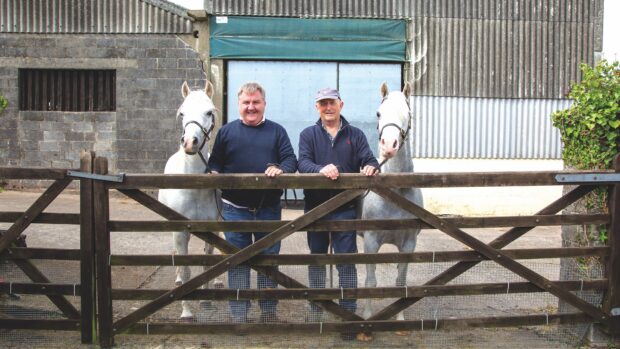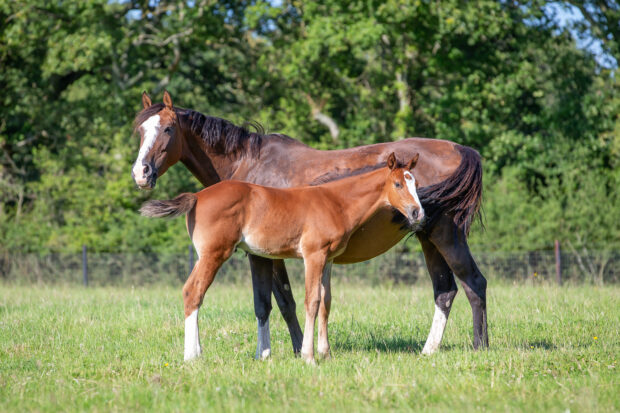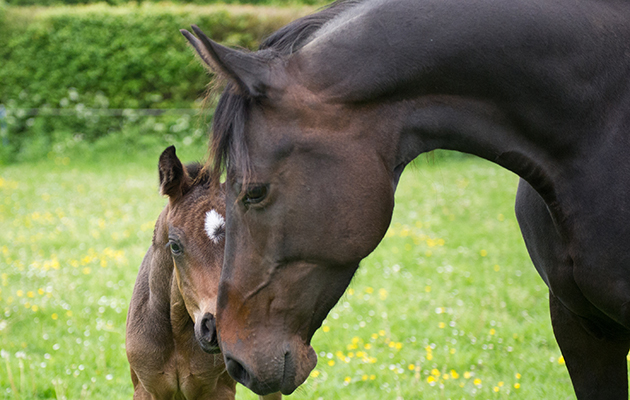ICSI stands for intra cytoplasmic sperm injection and is a modern breeding technique used in equines in conjunction with ovum pick-up (OPU). The overall process is known as in vitro embryo production (IVEP).
OPU refers to collecting oocytes (eggs) from a mare’s ovarian follicles, while ICSI is the lab-based process whereby a single sperm is injected into the matured oocyte, which is incubated to encourage an embryo to develop. This takes around seven to nine days.
Those oocytes that do develop into an embryo can then be transferred into a recipient mare to be carried to term, or frozen and transported for future use.
Because each injection only requires one sperm cell, ICSI is an efficient way of using semen, because a single straw of semen can be used multiple times. This makes it an attractive option in circumstances where semen stocks are limited, perhaps because the stallion has died, and it can also be advantageous for sub-fertile stallions.
What does OPU involve?
The collection process is performed with the mare standing, under sedation. An internal ultrasound probe is used to visualise the ovary, so that a guided needle can then aspirate (draw) the fluid and oocyte from the follicle. The process continues until 15 to 20 follicles have been collected. The oocytes are then processed and incubated to allow them to mature.
OPU is usually well tolerated by the mare and can be repeated in three to four weeks, as long as sufficient follicles develop. It is useful for mares with fertility problems, for example those who cannot conceive or carry a pregnancy, though not for those with poor oocyte quality. It can also be performed outside the usual breeding season and is often useful for busy sport mares as it can be done in a single day with minimal medication and interruption to her competition and training schedule.
What is the difference between ICSI and IVF?
ICSI is a form of in-vitro fertilisation (IVF). The main difference between the procedure is that in IVF, an egg and multiple sperm are combined in a petri dish to fertilise, whereas in ICSI a single sperm is injected into the egg.
In contrast to humans, IVF in this form is not reliable in horses and cannot be used effectively. However, ICSI is gaining in popularity and, while the results are variable and depend on a number of different factors, it has been shown to have an overall success rate of around 60-70%.
Is ICSI available in the UK?
ICSI is becoming a more popular breeding technique in the UK, having originally been more common in the USA and Europe due to the proximity of specialist ICSI laboratories.
At present, there are several reproduction centres in the UK that offer OPU, with the ICSI procedure itself then outsourced to specialist equine reproductive laboratories in Europe.
However, ICSI could soon become even more accessible to UK breeders, with a specialist IVEP laboratory at Equus Vets in Devon set to begin operating commercially in 2023.
You might also be interested in:

Is sport horse breeding on the cusp of a revolution? Meet the Mares of Macha team promoting ‘access proven breeding’

12 stallions standing in Britain that breeders need on their radar

Breeding expert Tullis Matson on working with legendary stallions – and collecting semen from elephants
Stallion AI Services’ Tullis Matson on famous stallions and his fascinating work with rare breeds and species – including elephants

Modern breeding methods: what are they and which one is right for your mare?
Horse & Hound magazine, out every Thursday, is packed with all the latest news and reports, as well as interviews, specials, nostalgia, vet and training advice. Find how you can enjoy the magazine delivered to your door every week, plus options to upgrade your subscription to access our online service that brings you breaking news and reports as well as other benefits.




